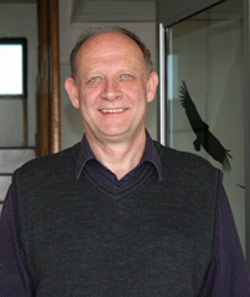
In fact, when he told his colleagues he was going to take on the government, they jokingly said “They’re going to take you out.”
Even he didn’t anticipate winning.
“All my lawyers said I was never going to win,” said Glenister.
“I told them I’m not interested in winning, but in sending a message to South Africans that the power that the government has comes from the people and it’s not the government that’s in charge. Once you say the government is in charge you’ve actually given up your right to anything. ”
Although Glenister lost in his bid to have the Scorpions reinstated, in March last year the Constitutional Court ruled that a section of the legislation that put an end to the elite investigation unit – which in turn created the Hawks – was inconsistent with the Constitution in that it takes away the unit’s independence from political interference.
The court agreed with Glenister’s view that South Africa needs to reinstate an independent corruption fighting unit that is going to investigate corruption without political interference.
Looking back to when it all started, Glenister remembers how much the South African public was afraid of the government back then. Things have improved over the past few years, however. He says he has watched South Africans stand up and make a difference.
Today, civil society organisations such as the Open Democracy Advice Centre and Corruption Watch are coming together in the fight against corruption.
Glenister’s greatest satisfaction is seeing how far South Africa has come in its fight against corruption.
“[In the beginning] I told my publicist that all I have to do is light the match, in other words start the fire,” he said.
“But the South African public need to start holding their government to account. The average person on the street needs to say to government ‘forget it you’re not going to take our money, you’re not going to hold us to ransom, and you need to deliver what you promised.”
Glenister, who has spent R4.3-million in lawyers’ fees during his ‘lone battle’, said he had won the first battle but it was now up to South Africans to win the war.
When he is not caught up in legal battles and parliamentary hearings, Glenister runs a business that sells financial independence and helps people realise their potential to make money.
“We don’t franchise anything, we don’t force them to buy anything from us,” he explained.” We basically just give them the tools and tell them to ‘go surprise us’.”
A fiercely independent individual, he ran away from home when he was young and didn’t finish school.
“I think freedom for me has always been a critical issue,” said Glenister. “And that is what I’ve made my money out of – by helping people realise that everyone has infinite potential, they just have to believe in themselves.”
So how did a guy who spends his life motivating others end up waging a war against corruption?
“It was an accident,” explained Glenister. “Someone sent me an e-mail saying they want to close down the Scorpions and I said no, no, no. Enough is enough.”
He claims to have thrown a coffee cup against the wall in anger upon hearing the news. Later, he began the search for a lawyer who had the courage to stand up against the government.
The biggest problem with corruption, Glenister affirmed, is that it erodes trust and leads to a breakdown in society. He added that South Africans need to be able to trust one another and love and respect each other.
“Once trust breaks down you have less and less people investing because they’re afraid or they have to pay someone to get something done. And then you have fewer jobs,” argued Glenister.
He recently launched a competition that invites Southern African youth to come up with ideas on fighting corruption effectively and to look at how to create a corruption-fighting body that will protect civil society against an overzealous government.
The competition encourages the youth to discuss how much corruption has affected their lives and how they think the corruption unit, the Hawks, should be fixed.
“I think we’ll be shocked at the value we’ll get out of the exercise,” he said.
“At least the youth will get involved in the issue. They feel left out of the race. I mean it’s their future – our time is coming to an end.”
He stressed the importance of having an independent corruption-fighting unit. The Hawks needs to report to the public – it needs to be an institution similar to the public protector where the head can’t be fired by a politician, he said.
Glenister however believes that it is also essential that South Africans look at ways to prevent corruption rather than finding a cure.
“If all we do is create bad laws and we make that body busy, then we are going to have 10 000 people working on a cure instead of preventing corruption in the first place. So we need to identify how corruption comes about.”
He cited overregulation as one of the reasons why corruption is rife in South Africa, saying that there are too many hurdles stopping people from entering the market so they end up paying someone just so that they can put food on the table.
Commenting on the possibility of the Secrecy Bill being passed, Glenister stated that in order to stop corruption, transparency is needed.
“The moment you want to introduce secrecy, you’re saying ‘I can hide some of my activities behind a wall, I can declare this document secret to the public’. I’m afraid the Secrecy Bill is a step in the wrong direction.”

